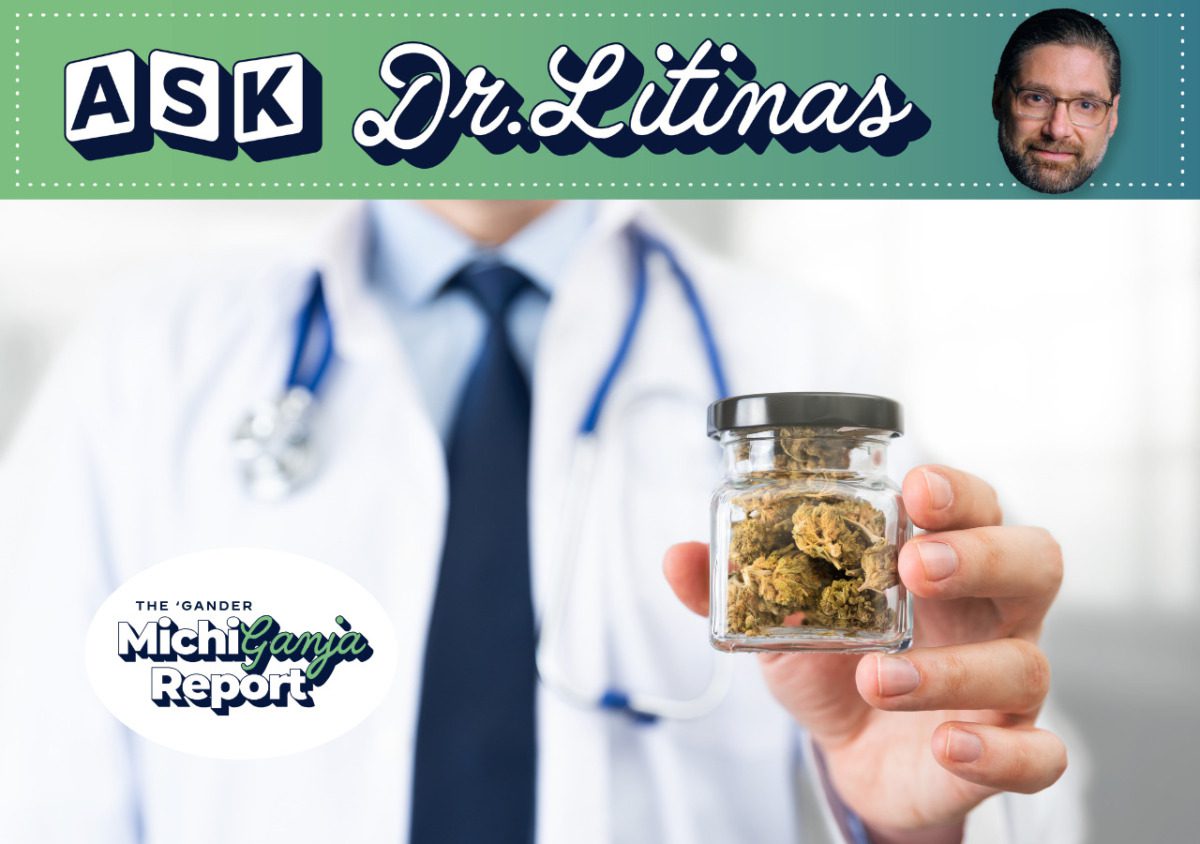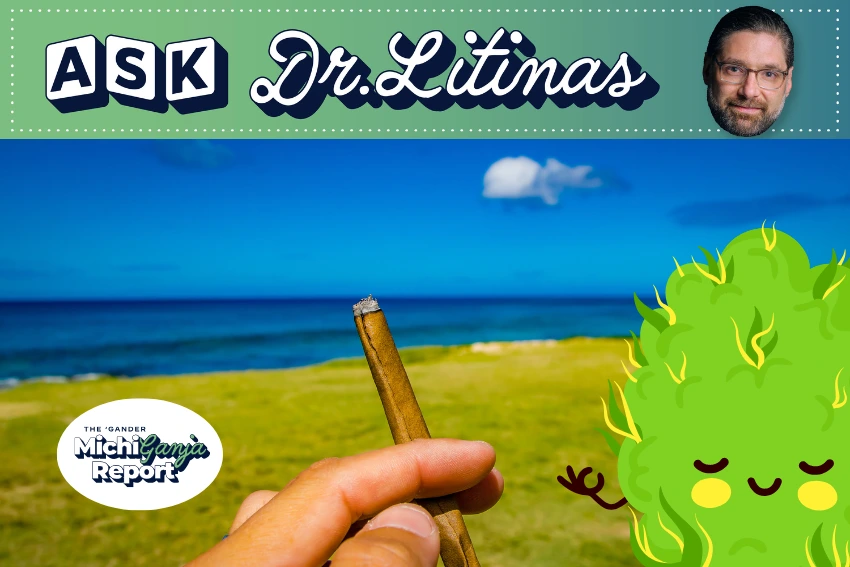
Ask Dr. Litinas is a column that publishes twice monthly as part of The MichiGanja Report—our free, weekly newsletter about all things marijuana. Click here to sign up.
MICHIGAN—As cannabis becomes more accessible in Michigan for both medical and adult-use consumers, it’s important to remember one critical step in your wellness journey: talking to your primary health care provider about your cannabis use.
Many people avoid this conversation, fearing judgment, awkwardness, or assuming it’s unnecessary. But the reality is that being open about your cannabis consumption with your doctor can protect your health and improve the quality of your care.
Why does it matter?
Cannabis, like any other substance, interacts with the body’s chemistry—and sometimes with other medications. Certain cannabinoids, especially THC and CBD, can alter how your body metabolizes prescription drugs by affecting liver enzymes.
This can either intensify or reduce the effects of medications you rely on, from blood thinners to antidepressants, and even over-the-counter medications.
By letting your physician know you’re using cannabis, you give them the opportunity to check for possible interactions, adjust dosages if needed, and monitor for any side effects.
Among the benefits of keeping your doctor in the loop:
- Medication safety: Avoid unwanted or dangerous interactions with existing prescriptions.
- Better treatment planning: Cannabis can sometimes complement other therapies. If your physician knows what you’re using, they can help design a safer, more effective treatment strategy.
- Tracking health changes: If new symptoms develop, your doctor can better identify whether cannabis might be contributing or helping.
What happens if you don’t talk to your doctor?
If you choose not to disclose your cannabis use, you run the risk of unanticipated side effects, medication complications, and miscommunication about your health goals. A physician might prescribe a drug that could interact poorly with cannabis without knowing the full picture.
As the stigma around cannabis use continues to lift, it’s becoming easier to have these conversations in a health care setting. Your primary care provider is there to support your overall health and wellness—and that includes understanding everything you’re putting into your body.
So next time you visit your doctor, don’t hesitate. Speak up about your cannabis use. It could make all the difference.
This content is for education, not medical advice. Talk to your doctor before making any health decisions—especially when it comes to cannabis. Products are only for adults ages 21 and up.
READ MORE: A little cannabis might be all you need for big results
Got a question about weed for Dr. Litinas? Send it in here. We’ll get you a response.

Want more cannabis news delivered right to your inbox? Click here to sign up for The MichiGanja Report—our free, weekly newsletter about all things marijuana.

6 pre-roll packs every Michigander needs for their annual Thanksgiving ‘cousin walk’
Before the turkey, the Lions, and the family drama, there’s “the cousin walk.” And these multi-packs of pre-rolled joints are built for that sacred...

6 quick hits of cannabis news from across Michigan
MICHIGAN—It’s been another weird, busy week in Michigan cannabis. Here’s what went down: ALL-NIGHT NUGS: A Genesee County dispensary is flipping on...

Ask Dr. Litinas: How Michiganders can shape their cannabis experience with intention
Ask Dr. Litinas is a column that publishes twice monthly as part of The MichiGanja Report—our free, weekly newsletter about all things marijuana....

5 quick hits of cannabis news from across Michigan
MICHIGAN—From border-town bans to delivery vans, it’s been another wild week in Michigan weed. Regulators want budtenders to start snitching, voters...

MichiGanja in Review: Gummies vs. gummies vs. gummies vs. gummies
A totally serious, absolutely scientific showdown between four green apple flavored gummies that all promised very different highs—and mostly...





